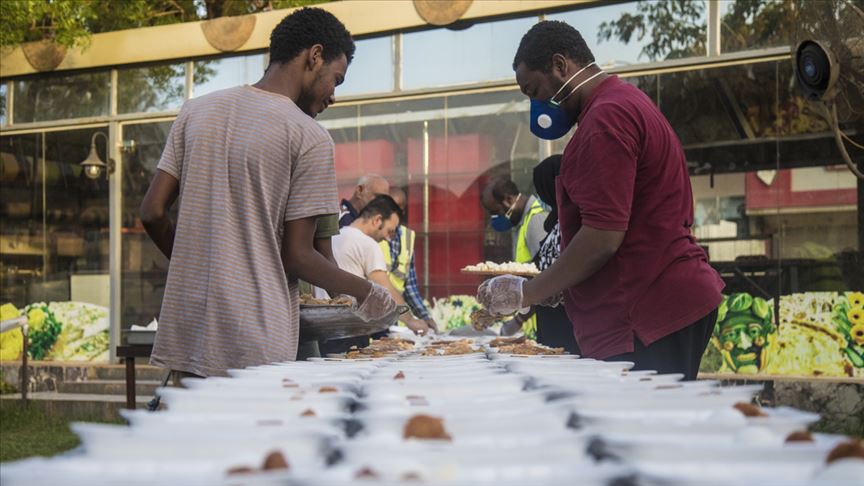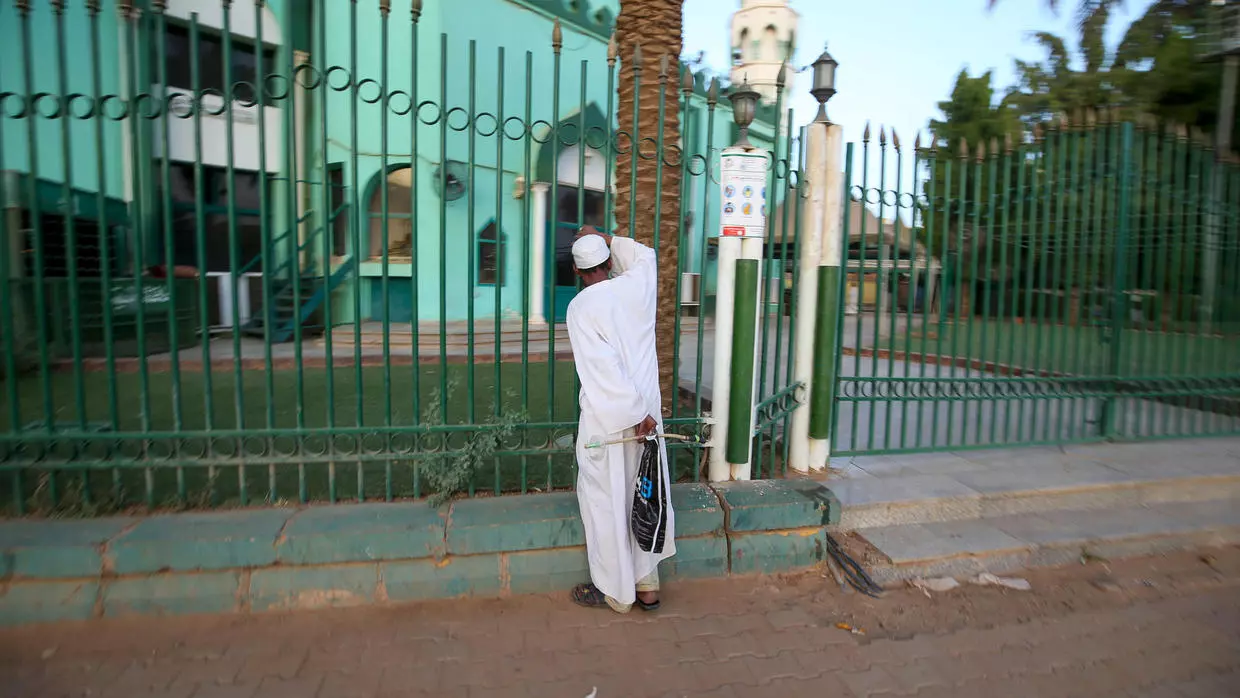One of the greatest months that passes by any Islamic nation is the month of Ramadan, which is defined as the month of mercy and forgiveness. This year, it may be the strangest month of fasting that Islamic nations have ever experienced. In this exceptional year, as the world is still suffering from the Coronavirus pandemic, the number of cases in the world continues to increase, with more than 4.6 million people infected, 297,360 deaths, and the recovered cases reaching more than 1.6 million. In Sudan, the number of infected cases has risen to 1592 with 247 recoveries and 105 deaths. The month of Ramadan has its special place, especially in the hearts of the Sudanese people, from acts of worship, prayer and even group and family breakfast gatherings, visits to relatives, friends, and loved ones. But this year, how did the Sudanese people cope with Ramadan?
The month of Ramadan this year has left a significant mark on the Arab world, not just Sudan. Some countries have taken up serious measures to reduce the spread of the Coronavirus pandemic. The Kingdom of Saudi Arabia, which is home to the most important Islamic landmarks in the world enacted strict measures. The authorities decided to continue broadcasting the Tarawih prayers in the Two Holy Places, while continuing to suspend the attendance of worshipers. In Iraq, the Supreme Committee in response to the Coronavirus crisis set up dates for imposing a curfew in the country during the month of Ramadan. The Jordanian authorities reduced the imposition of a comprehensive curfew from two days to one day, and fixed certain hours for citizens to leave their homes during the month of Ramadan from ten in the morning until six in the evening. In Egypt, the Ministry of Awqaf prohibited the opening of mosques and the broadcasting of the Qur’an in them, in order to limit the gathering of Muslims. It called Muslims to comply with campaigns under the slogan "your house is your mosque" for praying Tarawih, Friday, and congregation prayers on rooftops of houses to circumvent the prevention of orders issued by Al-Azhar and the government. One of the Egyptian initiatives to entertain citizens during this period was the art from the balcony initiative and training at home. It was an attempt by the government to take advantage of the lockdown in Alexandria to utilize the time of the ban among young people to benefit from it by developing artistic and educational skills.

Image via aa.com.tr
Of course, with the daily rapid increase in the number of people infected with Coronavirus, it has become difficult to predict the future of the world, the country and even returning to normal life. The transitional government has taken precautionary measures, which included closing mosques and allowing only calls to prayer – here, Muslims are prohibited from conducting Tarawih prayers in mosques. The government also prevented gatherings, stopped all occasions, closed bridges and prevented travel. Simultaneously, it has applied a curfew and dispatched security forces in main streets to preserve the safety of citizens, ensure that the streets are empty to limit the spread of the virus. Nevertheless, the number of infections is still increasing, and the virus has spread rapidly in different Sudanese states. We still see some citizens are dealing with this pandemic recklessly.
We all have a responsibility to quarantine. For us young people, this virus may not be fatal, but it may expose our loved ones and family if we are carriers. To ensure that the virus is not transmitted to elderly people, we have an obligation to stay at home and stop group breakfast at home and on the streets. It is no secret to us that some people continue to eat breakfast outside in groups inside neighborhoods and organize congregations for Tarawih prayers. There are those who practice sports outdoors and also on Nile Street in Omdurman, as well as young people inside neighborhoods who gather in groups for entertainment and chatting despite the curfew. We all know that Sudan is one of the countries that lacks diverse forms of entertainment, especially at home as many lack internet connection that satisfies the consumer. Enjoying staying at home is difficult, but this is the reality and we have seen that during Ramadan 2020, Coronavirus spread like wildfire due to stubbornness to continue with usual Ramadan traditions.

Image by Ashraf Shazly for AFP via France24.com
Some people took it upon themselves to abide by the ban and still have fun. On social media, challenges have started among young people, especially athletic people, to do sporting challenges from home and post them online. It is one of the greatest initiatives to maintain fitness and spread the culture of sports. As for the artistic side, artists have begun displaying their content on their personal accounts on social media and audiences directly interact with them. There are others who are enjoying Ramadan from the comfort of their homes – worshiping at home and watching special Ramadan series on TV. Taking online courses and getting free certificates are also beneficial activities to pass time during this period. We can also unwind by communicating with our friends and loved ones by contacting them via video calls. Alternatively, you can set a goal during this period and work on it, such as: completing a book, increasing your knowledge base, or being creative in your field or any other way that you can spend your time well.
We must adhere to the instructions with seriousness, and immediately report new and suspected cases, as we are the only ones who can put an end to the spread of this virus. I remember the speech of the Minister of Health – when he explained these shortages and the absence of a vaccine for Coronavirus and appealed to citizens to abide by the guidelines, directives, and stop social events and take the matter seriously. This is also the case in the face of lacking medical equipment and the spreading of the virus among medical staff.
In this peculiar year, Ramadan is characterized in a different way; it lacks social gatherings and the beautiful Ramadan occasions and collective worshiping we all looked forward to. Yet this is a small price we have to pay to secure our health. A different way to look at it is that Ramadan this year is distinguished by the constant staying at home and the participation of everyone at home in every activity. This makes it a great opportunity to get enough rest, work from home or increase our knowledge and professional expertise tremendously. These are just a few ways to overcome some of the challenges posed by Coronavirus during Ramadan and brace for the way forward as the lockdown is lengthened. We can comeback as improved versions of ourselves when life returns to normal.
